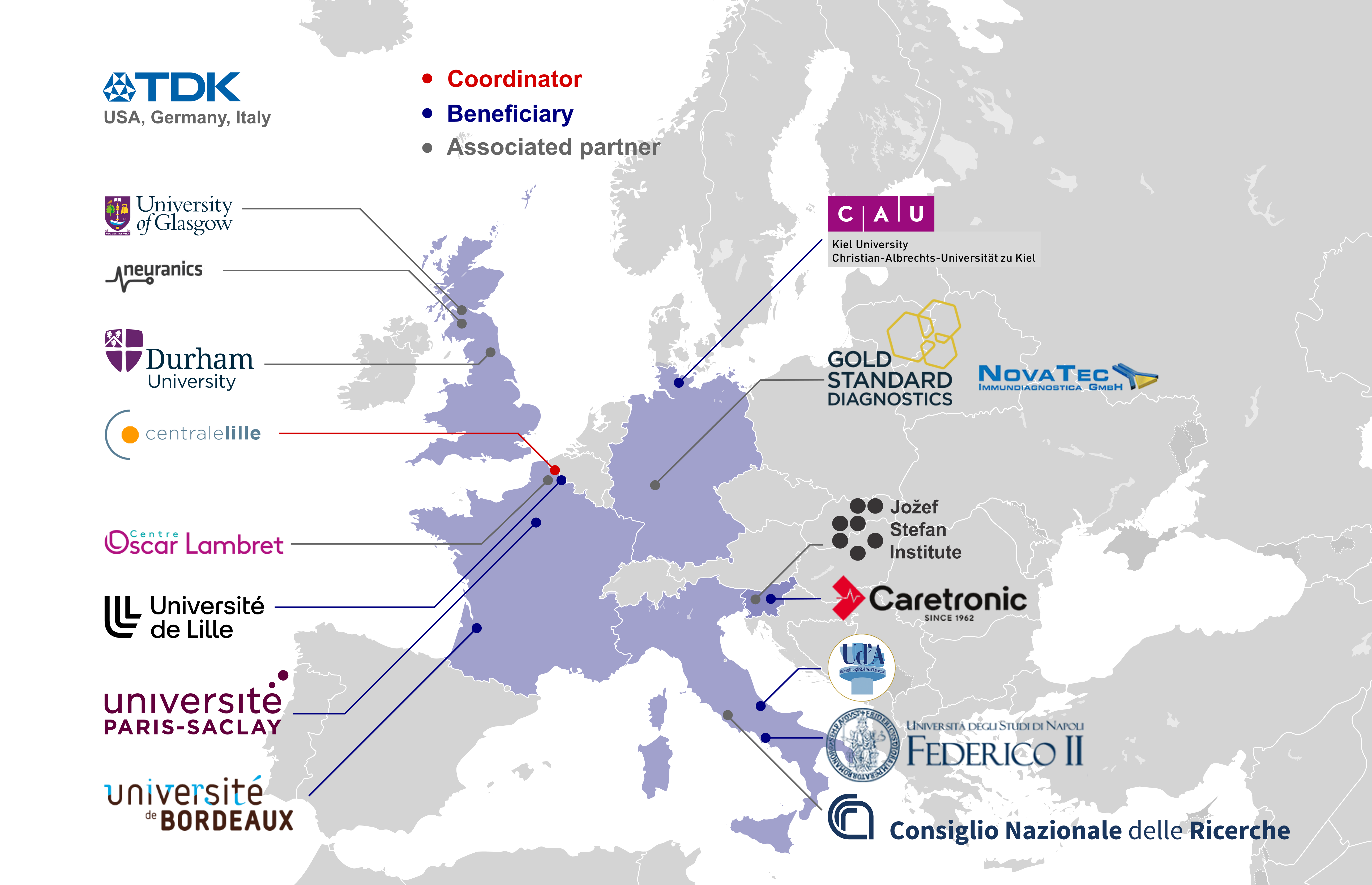About the project
Breast cancer ranks as the most prevalent cancer globally, recording 2.26 million cases in 2020. In Europe, it stands as the foremost diagnosed cancer in women, constituting 13.3% of all cases, and ranks third in cancer-related deaths for both genders, comprising 7.3% of fatalities. Urgent enhancements are imperative in diagnostic tools and treatment monitoring to cater to individual patient needs.
Breast cancer diagnosis and treatment face persistent challenges, with current methods often lacking the precision and ease of use required for optimal patient care. Existing techniques may lead to misdiagnosis, delayed intervention, or non-adapted treatment. With the support of the Marie Skłodowska-Curie Actions program, the CanDoIt project aims to integrate breakthrough technology—a multimodal, multi-physical biosensor array for the identification and quantification of peripheral biomarkers in liquid biopsies. By collaborating with industry and academia, the project will develop breast cancer diagnostic technologies and establish a high-impact structure for extensive dissemination. The overall goal is to revolutionize breast cancer research and treatment, bringing forth a new era of accuracy and efficiency in diagnostics and therapeutic monitoring.
CanDoIt is a Horizon Europe Marie Skłodowska-Curie Actions Doctoral Network. It integrates 18 teams, academic and non-academic participants from 5 European countries, with unique and outstanding expertise: Centrale Lille (FR), University of Lille (FR), University of Naples Frederico II (IT), University of Bordeaux (FR), University of Chieti-Pescara (IT), Kiel University (DE), Caretronic (SI), University of Glasgow (UK), Novatec Immunodiagnostica GmbH (DE), TDK Corporation (DE), Centro Nazionale delle Ricerche (IT), Oscar Lambret Cancer Center (FR), Durham University (UK), University of Paris Saclay (FR), Jozef Stefan Institute (SI), Neuranics (UK), Hand in Hand (IT).
CanDoIt aims to train 12 doctoral candidates for the development of multimodal biosensors for Breast Cancer diagnosis and therapeutic response monitoring. This project has received funding for 10 Doctoral candidates (DC) from the European Union’s Horizon Europe research and innovation programme under the MSCA grant agreement No 101120186 and funding of 2 DCs from the UK Research and Innovation.
